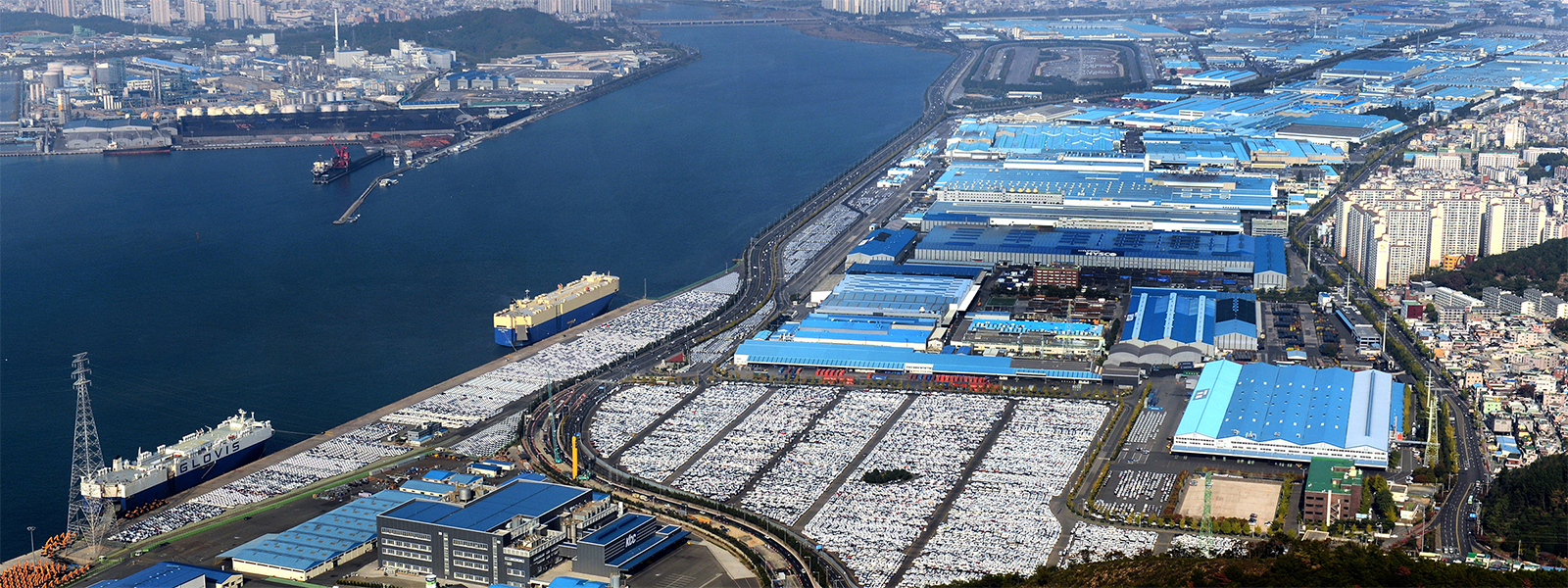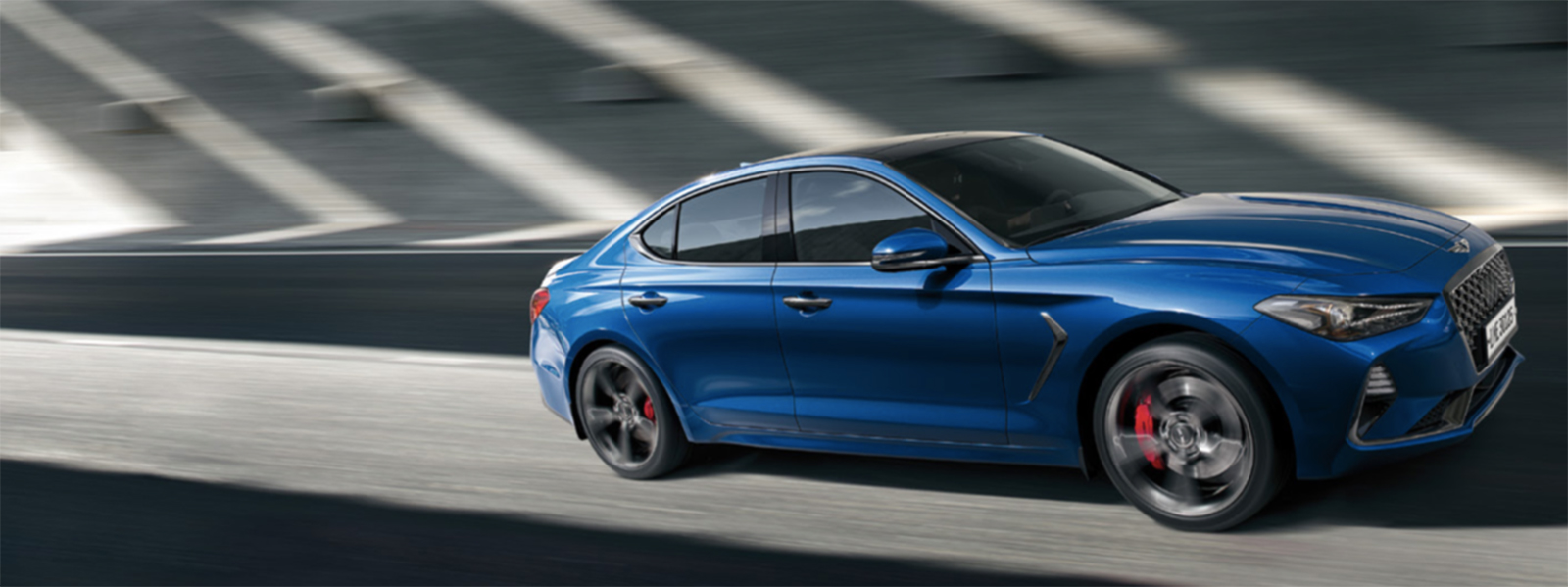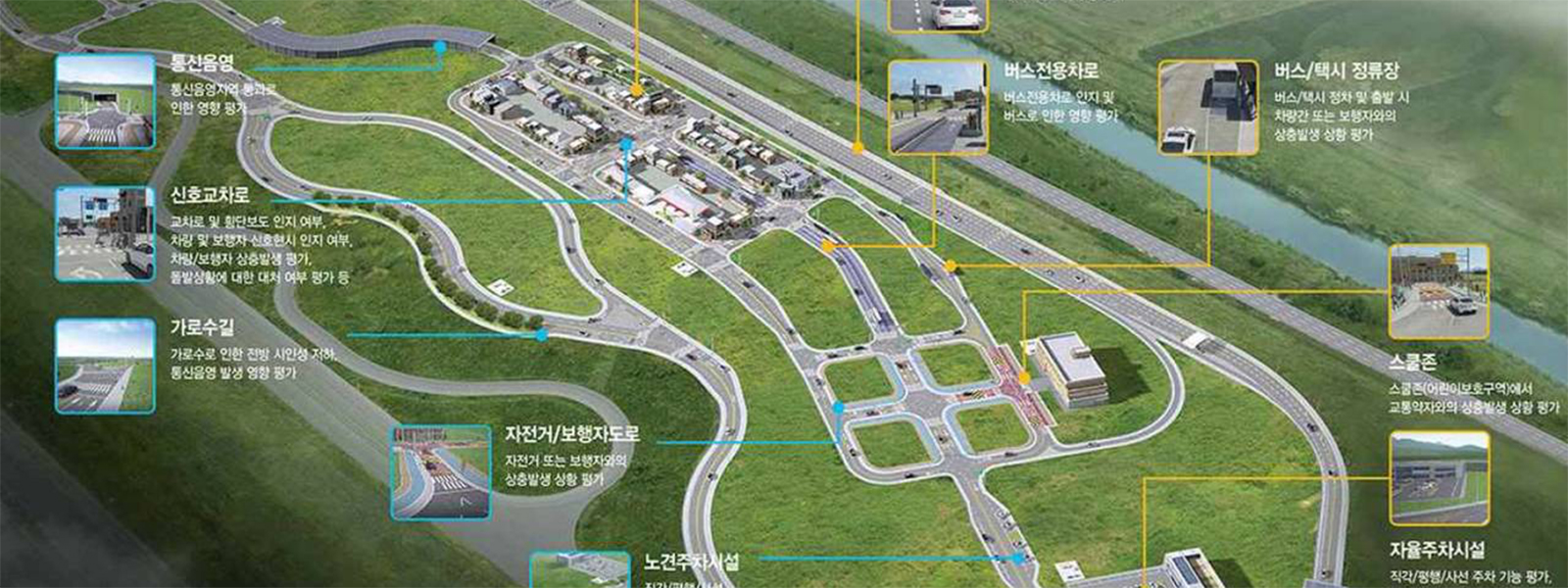Korean car manufacturers have achieved a phenomenal rise to leadership positions on the world stage, and are highly outward-looking when it comes to international collaboration. As the future of the industry now hinges heavily on developments in technology, this brings considerable opportunities for western tech firms – but only as long as they play their cards right. And this does not, as too many companies seem to think, mean building links with the Korean manufacturers’ overseas operations.
First car
Until the mid-1960s, Ulsan – 200 miles south east of Seoul – was a quiet fishing village. When the first car rolled off of the production line at Hyundai’s new plant there in 1968, even the most ambitious of Hyundai’s executives can't have imagined they were standing in what would become the world’s largest car factory.
It’s hard to convey the sheer scale of the operation as it is now. The facility sprawls over more than 15 million sqm (2,100 football pitches), employs more than 34,000 people and its five factories churn out a staggering 1.5 million vehicles every year. Thanks in large part to the area’s thriving automotive industry, Ulsan now has the highest GDP per capita of any part of South Korea.

Above: The 15 million sqm Hyundai Ulsan Plant
It’s safe to say the Korean automotive industry has come a long way, and the Hyundai Motor Group – Hyundai, Kia and Genesis – is now the fifth largest car manufacturing group in the world. Fifty years since it built its first car, Hyundai has just been awarded ‘Manufacturer of the Year 2018’ by Top Gear Magazine – something unthinkable even a decade ago.
On awarding the prize, Top Gear said: “After decades of us telling you Hyundais have less personality than call centre hold music, the South Koreans have pulled it off. Hyundai now boasts an arsenal of cars to make established conglomerates jealous. An underdog that wins best in show? Humble Hyundai has come a long way.”
It’s not just Hyundai that’s turning heads. This year, the Genesis G70 was awarded the MotorTrend Car of the Year Award for 2019 – the first time the prize has ever been awarded to a Korean car since the award scheme began way back in 1949. In MotorTrend’s words: “That's all pretty unthinkable, right? Unthinkable, that is, unless you've been paying attention.”

Above: The Genesis G70
Spectacular rise
So, what’s behind this spectacular rise to the global stage?
The central plank of the Korean automotive industry for much of the past 50 years has been its commitment to making cheap yet reliable cars. In the 1990s, plagued with recalls and low customer satisfaction, it saw the success Samsung was having by embracing quality, so it overhauled its approach to quality control.
When both Hyundai and Kia launched in the USA, the group continued driving home its dedication to quality by introducing the industry’s first 10-year warranty. Back in the 1990s, this was a bold move.
The ability to commit to such a paradigm shift is in large part thanks to the corporate structure at the Hyundai Motor Group. Chung Mong-Koo, the much-revered CEO at the conglomerate – or chaebol, as they’re known in Korea – has ruled with unwavering obedience from his subordinates since taking over in 1987. The sheer power in the hands of executives in the chaebol system can make or break a company. For a group that’s now responsible for almost 15% of Korea’s entire GDP, his leadership has been wildly successful.
Of course, strong leadership gets you nowhere without a dedicated workforce. Despite recent government reforms, Koreans still work the third longest hours in the world, at 2,069 hours a year – compared with 1,783 in the USA, 1,676 in the UK, and just 1,363 in Germany. Sheer hard work has supported the unstoppable rise of Korean chaebols on the global stage – Samsung and LG to name but two others.
Outward focus
A crucial point in all of this is that Korean car manufacturers, since their inception, made a pragmatic decision to take an outward focus – collaborating internationally and learning from external expertise.
It may come as some surprise to realise the first car to roll off the production line at Ulsan in 1968 wasn’t even a Hyundai – it was a Ford Cortina. When Hyundai decided it wanted to start building cars, rather than designing and building its own, it secured a licence from Ford to make cars on its behalf.

Above: Hyundai's Ford Cortina / 코티나
When it came to launch its first own car in 1975, Hyundai again deferred to foreign talent – hiring George Turnbull, former MD of Austin Morris at British Leyland, to lead the project. Designed by Italian Giogetto Giugiaro, powered with drivetrain technology from Japan’s Mitsubishi and built with more than a handful of parts from Ford, the very international Hyundai Pony was born.
The approach of tapping into foreign talent has persisted. In 2006, Hyundai poached Peter Schreyer — a designer renowned for the Audi TT — to overhaul vehicle design at both Hyundai and Kia. More recently, Hyundai poached Albert Biermann from BMW’s ‘M’ division to head up the development of its suspiciously-similar ‘N’ performance car range.
Technology
As the automotive industry in Korea has grown, so too has the way Korean automotive firms collaborate internationally. With their vehicles now challenging established European, American and Japanese marques in quality and design, their future development hinges on the next generation of challenges facing the industry: technology.
In 2012, Hyundai made a statement of commitment to innovation by launching Hyundai Ventures – a centre in Silicon Valley geared to collaborating with pioneering hi-tech start-ups. The motor group is set to open a further four more innovation centres — in Tel Aviv, Berlin, Beijing and Seoul — over the coming year.
Last year alone, Hyundai Motor has signed partnerships with Chinese AI start-up DeepGlint, Silicon Valley-based self-driving firm Aurora and Boston-based UAV (Unmanned Aerial Vehicle) start-up Top Flight, amongst others. It’s also announced a $6.7 billion investment in hydrogen fuel-cell vehicles.
Government support
The Korean government, meanwhile, is fully aware of the importance of the automotive industry to Korea’s economy and the role of tech innovation in the auto sector. It’s keen to help drive growth and is investing in several projects to promote the development of autonomous cars, V2X (Vehicle to Everything) communication and hydrogen infrastructure.
One such project is the recently-opened K-City – one of a number of ‘digital twin’ towns that have emerged as test beds for the latest smart city technologies. At 320,000 sqm, K-City is reportedly the world’s largest dedicated facility for testing self-driving cars, built to replicate real-world scenarios including bus and bike lanes, highways, built-up urban areas, parking bays and more.

Above: The K-City testing facility for self-driving cars
The right approach
So, the vital importance of technology to the industry has come just as Korean automotive firms have burst onto the world stage. The time is now for western tech companies to sit up and explore the opportunities this presents for their businesses.
But taking the right approach is vital. Too many western firms are focusing on trying to make contacts in Korean car makers’ overseas outposts. This isn’t harmful in itself — although it won’t help much either, and it gives these companies a false sense they ‘have a strategy’ or are ‘taking action’.
The real power lies in Korea itself. And to make progress there, you need a presence on the ground and relationships with the right people.